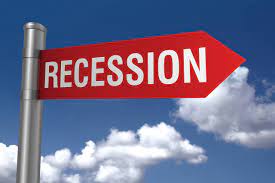Dutch Economy Enters Recession

Dutch Economy Enters Recession: The Dutch economy has entered a recession, contracting 0.3% year on year in the second quarter. This is the first recession since the pandemic, and it comes on the heels of a 0.4% drop in the first three months of the year. The eurozone’s fifth largest economy was driven by a drop in consumer spending and exports. Consumer spending fell 1.6%, while exports were 0.7% lower than in the first three months of the year. Inflation in the Netherlands has declined since peaking at 14.5% in September 2022, but remained rather high in the second quarter of 2023, at around 6%.
Daily Current Affairs Quiz: August 2023
The Dutch economy is facing a number of challenges, including high inflation, rising interest rates, and the war in Ukraine. These challenges are likely to continue to weigh on the economy in the coming months, and it is possible that the recession could deepen.
Here are some additional details:
The recession is expected to have a negative impact on employment, with the unemployment rate rising from 3.5% to 4% in the coming months. The government is anticipated to pursue economic stimulus measures, such as expanding infrastructure investment and granting tax breaks to businesses.
The outlook for the Dutch economy is uncertain, and it will depend on how the global economy evolves in the coming months.
Countries who came under Euro zone:
- For the unversed, the ‘Eurozone’ is a currency union of 20 member nations of the European Union that have adopted the Euro as their primary currency and legal tender.
- Austria, Belgium, Croatia, Cyprus, Estonia, Finland, France, Germany, Greece, Ireland, Italy, Latvia, Lithuania, Luxembourg, Malta, the Netherlands, Portugal, Slovakia, Slovenia, and Spain are all members of the Eurozone.
Important takeaways for all competitive exams:
- Netherland Capital: Amsterdam;
- Netherland Currency: The euro.;
- Netherland Prime Minister: Mark Rutte.